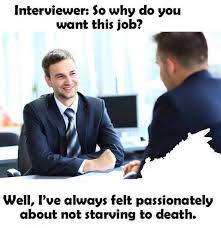You rarely get a second chance to create a good first impression, so use these tips to get prepared.
Before the interview
 Be prepared and know your CV. Review your CV before the interview; be ready to talk about any aspect of your career to date and your interests.
Be prepared and know your CV. Review your CV before the interview; be ready to talk about any aspect of your career to date and your interests.
- In particular make sure you can talk through aspects of your experience which will be of benefit to your potential new employer.
- Ensure you have a full job description, and are aware of the format that the interview will take.
- Do some research of the organisation As a minimum, read the organisation’s website and familiarise yourself with the main ‘business’ and structure.
- Have some questions prepared: A minimum of 5 should help give your Q and A time some structure and ensure that your find out what matters to you about the organisation and the job on offer.
On the day
 Dress smartly/appropriately Well groomed and appropriate dress is essential to create a good impression. This will not only aid your self-presentation directly, but may also make you more relaxed – knowing that you’ve hit the sartorial mark.
Dress smartly/appropriately Well groomed and appropriate dress is essential to create a good impression. This will not only aid your self-presentation directly, but may also make you more relaxed – knowing that you’ve hit the sartorial mark.
Arrive on time 15 minutes early is preferable. Before you set out, plan your route and give yourself at least half an hour’s leeway. Have a contact telephone number just in case. If you get there too early, have a glass of water, settle yourself and get used to the environment.
Be polite to all staff you meet – you never know, they could well influence the recruitment process Once there, turn your mobile phone/messenger off!
The interview
 The interview is a two-way process and an opportunity to ensure that the job and the company are right for you, as well as impress the interview panel.
The interview is a two-way process and an opportunity to ensure that the job and the company are right for you, as well as impress the interview panel.
- Smile; ensure you come across as friendly, approachable and enthusiastic. • Listen carefully to questions and allow the interviewer to finish speaking before responding
- Don’t worry about pausing before you answer a question as this shows you are considering it seriously.
- Where possible, give practical evidence of any statements you make
- Never criticise former employers
- Maintain eye contact, relax and show interest in what the interviewer
- If you do not know an answer, say so.
- Be yourself, when you get the job you might disappoint if you cannot live up to the “tiger” you presented at interview.
- Attempt to “close” the interview. At the end of an interview to try to find out how the interviewer thought it went and whether they have any reservations regarding your application as this is the best time to counter them.
Be prepared for questions such as:
- What do you know about our organisation?
- What interests you most about the role?
- Why should we appoint you?
- What is important to you in a role?
- What was your greatest success in your last position?
- How would your Manager or colleagues describe you?
If you want a fuller set of questions to practice a mock interview, take a look at these detailed question; Sample Interview Questions 2017
You will usually have the opportunity to ask questions at the end of the interview – think about what is important to you, but some questions might be:
- What training and development can I expect on joining your organisation?
- How many candidates are you interviewing for this role?
- When will you be making a decision?
Prepare for surprises, interviewers can slot into roles, there may be a devil’s advocate, an inquisitor, a soul searcher for example. You may be judged more on how you deal with the curve ball questions than your actual answer. Often it’s not so much what you say but how you respond.
Finally…
Make sure you have confirmed your interest in the job. • Conclude the interview with a handshake, remembering to thank the interviewer for their time.
Sources for these tips: http://www.select.co.uk/job_seekers/advice_centre/top_tips_for_interview.aspx http://www.jobsite.co.uk/articles/candidate/c1/s12/a602.html